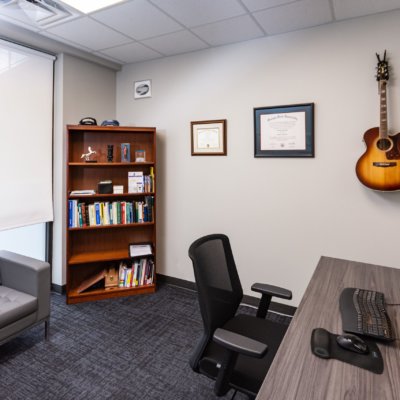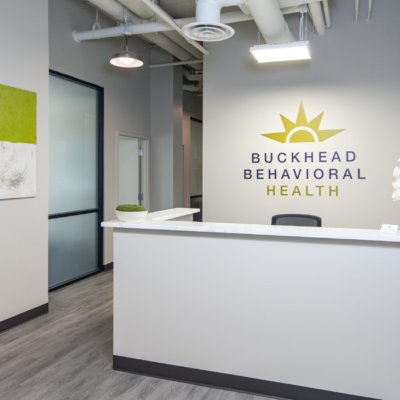When someone’s life becomes overrun by drug or alcohol abuse, they will need to find a professional addiction treatment program. Our rehabs in Georgia provide each individual with the focused care they need to become sober. We employ a staff of educated, compassionate clinicians who understand how hard it can be to ask for help. We help guide people to understand the source of their addictions and how to overcome them. With our help, they can improve both their physical and mental health.
If you or a loved one is struggling with substance use disorder, call us now at (470) 460-6789 or fill out the form below and one of our admissions representatives will reach out to you shortly.
What to Look for in a Georgia Rehab?
Anyone looking for info on rehabs in Georgia should feel free to ask questions about each facility. First, the rehab should have proper accreditation or certifications from the state of Georgia to ensure they provide the care required by law. This includes accreditations from the following:
- Commission on the Accreditation of Rehabilitation Facilities (CARF)
- National Association of Addiction Treatment Providers (NAATP)
- The Joint Commission
- LegitScript
In addition, the staff at the rehab should be properly licensed and able to provide treatment. When talking to someone on the admissions staff, it’s important to make sure they understand the needs the individual has and that the facility is fully capable of addressing them all.
Part of providing treatment should include having amenities that add to the person’s experience. This can include providing meals and recommendations for outside care options, such as sober living homes. When a rehab’s website or other promotional materials contain photos or videos of the facility, it helps people see what they can expect when they arrive. The building should be inviting with a homelike feeling that makes people feel comfortable spending time there.
Finally, a great rehab will recommend aftercare programs to use once formal treatment concludes. This improves the individual’s ability to continue to make healthy choices that allow them to enjoy a sober life.
Georgia Addiction Statistics
While Georgia enjoys its reputation for beautiful scenery, Southern hospitality, and the thriving metropolis of Atlanta, the Peach State also struggles with a large population addicted to drugs and alcohol. About 526,000 people in Georgia have a substance use disorder. This accounts for about 6.7% of the state’s population.
The Centers for Disease Control reports that in 2017, there were 1,537 drug overdose deaths in Georgia. In 2020, that number increased to 1,916 deaths. Additionally, the Georgia Department of Public Health reported that the number of drug overdoses in the state increased by almost 56 percent from 2019 to 2021. This alarming increase is attributed to an increase in abuse of opioids. Overdose deaths related to fentanyl, which is an opioid, increased by about 218 percent during this same period.
Overdoses related to use of stimulants have also shown an increase. Nearly half of all opioid-related overdose deaths in 2021 also involved a stimulant drug. Addiction to drugs or alcohol often happens alongside mental illness. In 2021, approximately 1.4 million Georgia residents had a mental health disorder. All of this points to the need for effective rehabs in Georgia to help people regain their health.
What Types of Addiction Are Treated at Our Rehabs in Georgia?
A variety of types of drugs can end up becoming problematic for people to the point that they develop an addiction. Our rehabs in Georgia offer a program with finely tuned plans for treatment for several types of substance use disorders. Addictions we treat include:
- Alcohol
- Opioids
- Fentanyl
- Cocaine
- Benzodiazepines
- Amphetamines
- Methamphetamines
- Heroin
- Dual Diagnosis Disorders
- Percocet
We also treat people who have a dual diagnosis, which is the presence of both an addiction and a mental health disorder. For example, someone might experience a fentanyl addiction along with depression. We can treat both conditions at the same time, saving the individual both time and money.
What to Look for in a Rehab in Georgia?
Any rehab worth considering will employ licensed treatment experts with a great deal of experience in helping people become sober. The staff will understand how difficult it is to ask for help. Because of this, they will treat each individual with compassion and respect, making it easier for them to open up and talk about their lives. Real partnerships develop during treatment, allowing people to talk about their emotions and experiences. When this happens, they feel free to let go of their pasts and embrace a healthy future.
When exploring options for rehabs in Georgia, it can help to put together a list of questions. Contacting the facility can result in getting the answers the individual who needs help may have. As well, loved ones can call the facility with their own questions and concerns. The admissions staff should be happy to answer questions and provide information as needed. Some common questions include:
-
- What services do you offer?
-
- Are you accredited?
-
- What credentialing does your staff have?
-
- What is the average length of stay?
Most insurance plans cover treatment for substance use disorders. Someone interested in getting help can look for a facility that accepts their insurance. Many treatment centers can help the person determine if their particular plan provides coverage and answer questions related to the specific type of care covered. Even without insurance coverage, many facilities can offer ideas for private pay in order to help the person receive the treatment they need.
Georgia Rehab Resources
Location is also a big factor in considering a rehab in Georgia. Close by to a number of locations, Buckhead Behavioral Health serves and provides resources in the following areas:
Levels of Care We Offer
One of the big questions a person must answer when deciding on which drug rehab in Atlanta is best for them pertains to the level of care they need. An initial assessment by a physician, therapist, or admissions counselor at a rehab center can help a person figure out what care they should undertake. The levels of care provided by rehabs in Georgia include:
Detox: Everyone needs to undergo detox before they begin any other type of treatment. Detox programs typically last five to ten days and provide medical supervision to help minimize withdrawal symptoms.
Residential: This requires the person to live in a facility for 30 days or more and provides intensive care from professionals 24/7.
Outpatient: Treatment sessions take place during the day or evening. Participants travel to the facility for appointments and ideally attend a 90 day rehab program. Outpatient care includes three types of care:
- Outpatient rehab (OP)
- Intensive outpatient programs in Atlanta (IOP)
- Partial hospitalization programs (PHP).
Benefits of Enrolling in Our Rehabs in Georgia
In order to assure that someone receives the best care possible, they should look for a few different things. The most effective rehabs in Georgia feature a staff of professionals that have extensive training and experience in treating substance use disorders. Staff may include therapists, psychologists, psychiatrists, doctors, nurses, and more. Each staff member understands the importance of offering compassionate, evidence-based care to help people not only become sober but learn how to stay that way for life.
Another benefit of attending rehab is the variety of types of treatment they offer. Someone who has access to multiple therapy modalities increases their chances of getting better. As well, some types of therapy can be continued after formal treatment has ended. For example, a person who leaves the care of a rehab program may benefit from continuing options they experienced while in treatment.
We offer a wide variety of both individual and group therapies that help people understand the nature of their addiction and how to live life to the fullest so that they no longer feel the need to drink or use drugs.
The types of therapy we offer include:
- Trauma therapy
- Holistic rehab
- Family therapy
- Medication-assisted Treatment (MAT)
- Brainspotting Therapy
- Neurofeedback Addiction Treatment
- Red light therapy
- Psychiatry
- Individual Psychotherapy
For those who qualify, virtual treatment for substance use disorders can be a good fit. The benefits of this include being able to take less time out of their day than in-person sessions require. Virtual IOP programs can offer the same dynamic, results-driven care others get when attending sessions at a facility.
How Do I Know I Need Rehab?
Someone in the throes of addiction to drugs or alcohol may have difficulty recognizing how sick they have become. For that matter, many family and friends don’t know the signs that indicate a loved one has crossed the line and needs rehab in Georgia. If you are in doubt about if you need rehab, take this quiz by answering either yes or no to each question:
- Do I use substances even though they keep producing negative results in my life?
- Do I find it difficult or impossible to get through the day without using substances?
- Do I experience hangovers or other ill effects after using substances?
- Has my work, school, or personal life suffered due to substance use?
- Have I developed a tolerance to a substance and have to increase the amount I take to get the same effect?
- Have I tried to stop using a substance and found I couldn’t do it?
- Do I use substances to help ease feelings such as anxiety, depression, or moodiness?
- When I don’t use a substance regularly, do I experience withdrawal symptoms?
- Have I stopped using substances in the past but returned to abusing them?
If you answer “yes” to two or more questions, you may have a substance use disorder and need to get help quickly.
Asking The Right Questions
Remember that as the person who wants to get the best treatment possible, you have the right to ask as many questions as you like. This helps you really understand what each rehab offers. The admissions staff should be open to giving you all the information you require while being friendly and supportive. A good list of questions to ask includes:
-
What Insurance Plans Do You Accept?
Find out if they take your insurance and what it will cover. You can also find out about alternative options they offer for payment.
-
What Types of Therapy Do You Provide?
An effective addiction program will offer a lot of types of therapy that help people learn about their addiction and stay sober. Look for both traditional talk therapy and holistic therapies.
-
Can I Attend Sessions Virtually?
Lower levels of outpatient care often offer virtual appointments. This means the person can log into a session via their computer or phone without having to travel to the facility.
-
Do You Treat Mental Health Disorders?
Many people have both an addiction and a mental illness and benefit from receiving treatment for both conditions simultaneously. Most often, those who treat both mental health and substance use disorder simultaneously is know as a dual diagnosis treatment program in Georgia.
-
Do You Offer Medication-Assisted Treatment? (MAT)
A quality rehab should provide options for FDA-approved medications that help ease withdrawal symptoms that often happen when someone stops using drugs or drinking alcohol.
Substance Abuse Resources
The more resources a person has available to them, the more they improve their chances of helping themselves or someone they love. This includes issues that tie into addiction, such as depression, suicidal feelings, and the need to talk to someone when a person struggles with their feelings. Resources worth checking out include the following:
Find A Rehab in Georgia Today
Have you made the brave decision to get help for addiction to alcohol or drugs? Buckhead Behavioral Health knows you have a lot of choices for rehabs in Georgia. We offer outpatient programs that teach you to address your substance use disorder head-on and overcome it. We provide a large menu of types of therapy that teach people how to change the way they think. This allows clients to implement healthy coping skills that keep them from succumbing to the temptation to relapse. We also provide valuable medical and psychological support to help ease the withdrawal symptoms that come with getting sober.
Let us talk to you about how our treatment program can help change your life. Visit our admissions page today for more info.














